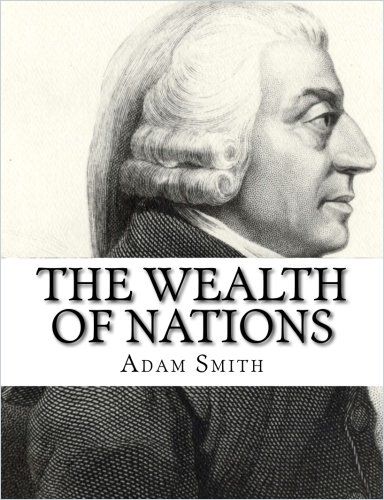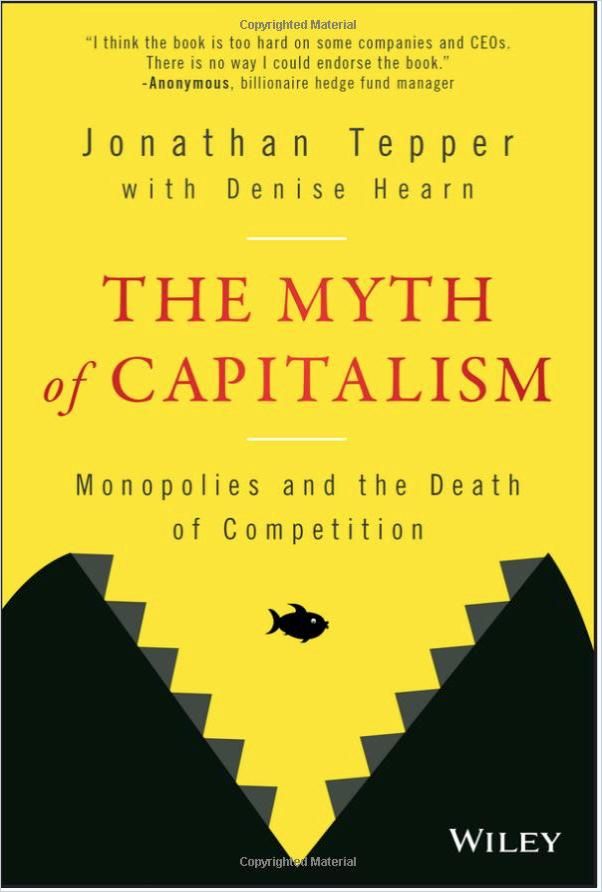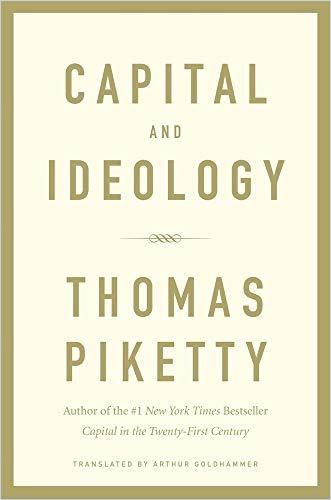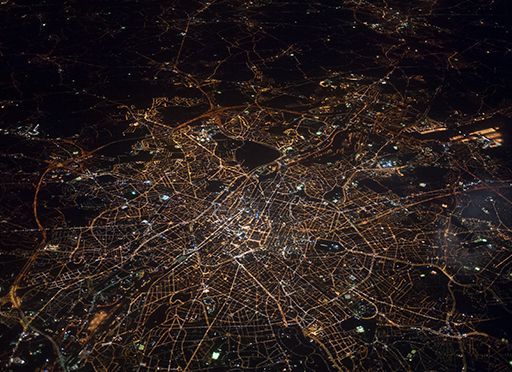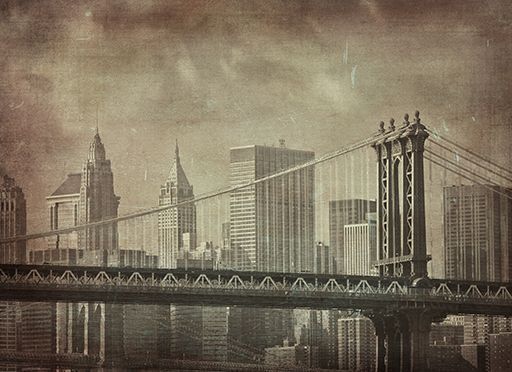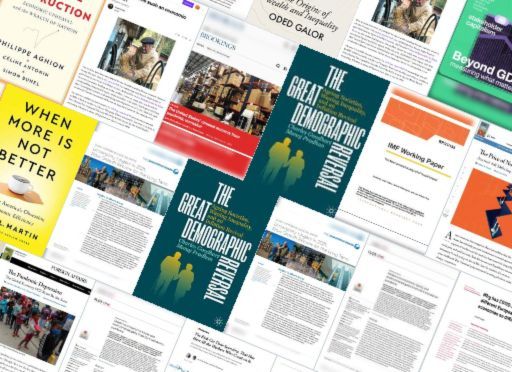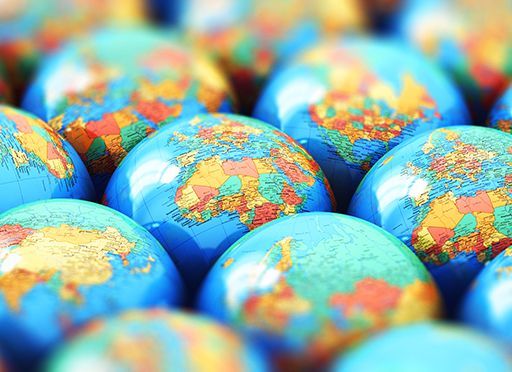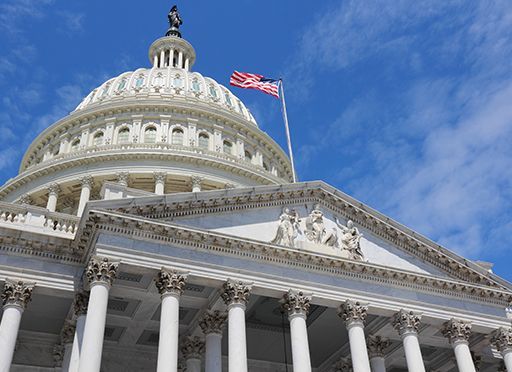“Lack of Competition Generates Hubris…”
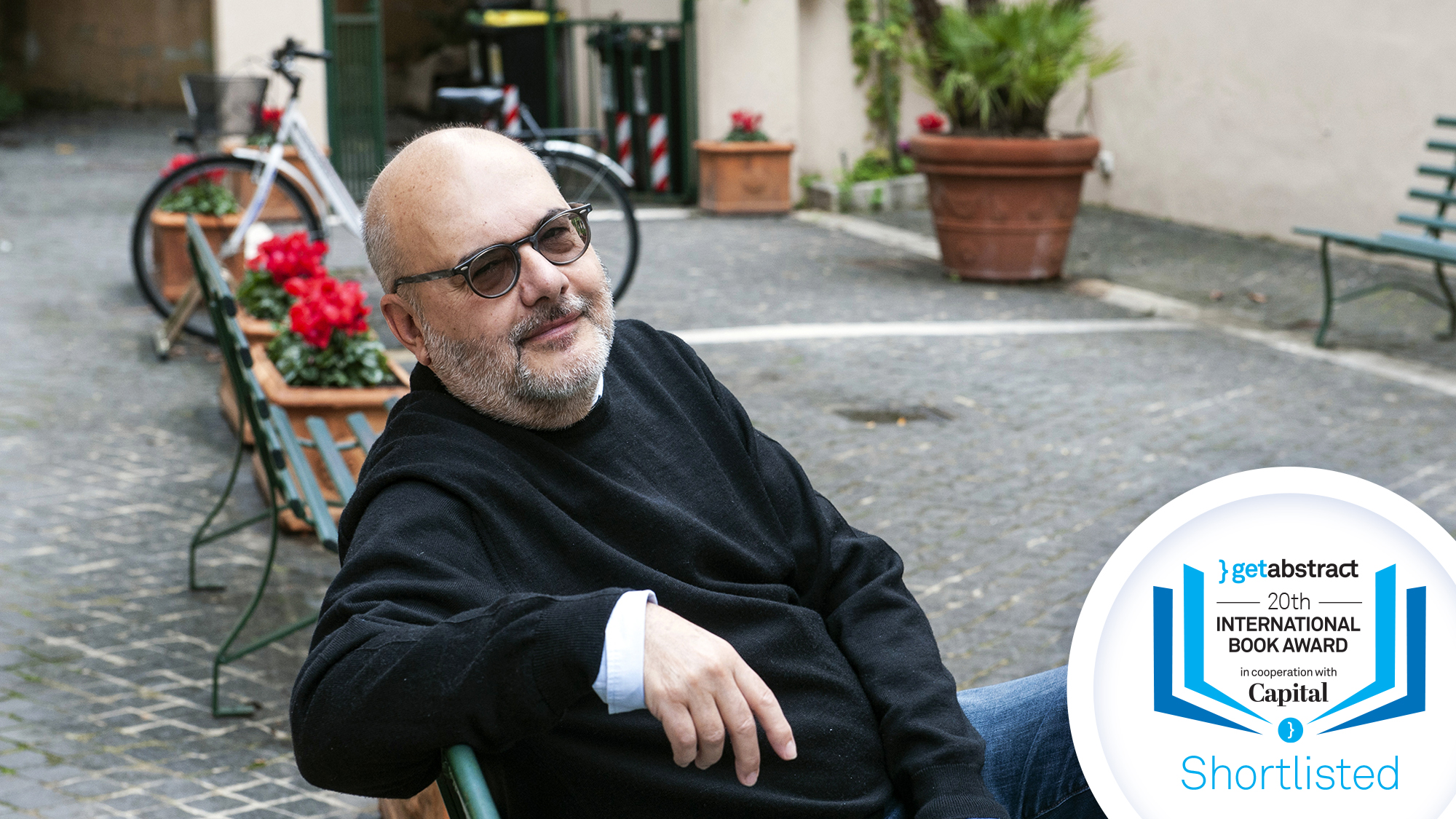
Mr. Milanović, in your recent book Capitalism, Alone, you argue that the world has largely adopted capitalism, the economic system based on private ownership of the means of production. But clear distinctions exist between “liberal capitalism” and “political capitalism,” as you call them. What are they?
Branko Milanović: The distinctions are both in the political and, even if less so, in the economic arena. Politically, the distinction is between a democracy and an authoritarian state-led system. But that distinction percolates into economic life itself. Under political capitalism, the state plays a greater role in the economy than under liberal capitalism. In China, that role is easily seen in the state’s influence over the banking system, the stock market, key industrial sectors that are largely state-owned, and even in the close relations between the state and rising IT giants. However, one should not imagine that some of that large state role is unique to China. France, for example, until the mid-1980s had a large state-owned and state-influenced sector, including in banking. And it was obviously a capitalist country.
Can you think of some examples clarifying the concepts, their borders, and their “compatibilities” from country to country?
I list a number of countries of political capitalism, from Algeria to Vietnam. However, I need to explain that my approach to political capitalism of Chinese variety is not ad hoc, nor is it based on what we observe today only. It stems from an interpretation of the role of communism in global history.
Can you elaborate?
In Capitalism, Alone, I argue that communism was a system that enabled poor and colonized, or quasi colonized countries to effect both a social revolution – break the power of landlords, impose equality of genders, spread education and public health – and to create conditions for the development of autochthonous or domestic capitalism. The role of the left-wing or communist parties there was functionally the same as the role played by the “bourgeoisie” in the West.
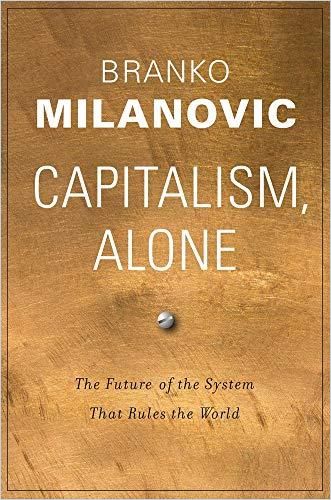
The crucial and big difference between the West and the Third World was that the West was not colonized. This is a new interpretation of the role of communism, and political capitalism derives from it. So, I do not introduce these two categories – political and liberal capitalism – ad hoc. On the contrary, they are grounded in history.
And so are the possible misunderstandings here. In Western politics, for example, it still looks as if the significant systemic issues of the last century – one could say, the old Cold War ideological warfare – will be cultivated further, especially when it comes to the United States and China. To what extent is it misleading still to call today’s China a “communist” country?
Calling China “communist” is wrong if one uses any realistic definition of communist and capitalist economic systems. China is predominantly a private market economy with some 80% of the value added produced in the private sector, more than 90% of employment in the non-state sector – lots of it is self-employment in agriculture – and more than half of fixed investments undertaken by private entrepreneurs. No country with such numbers and decentralized decision-making can be called “communist,” or we just have to give the term an entirely new, and very strange, meaning.
But to what extent can a still somewhat communist political system integrate capitalist economics without risking to burst?
The Chinese political system is always at a significant risk of imploding to the extent that people consider democracy as a “primary” good – something that is good in itself. That is, do not consider democracy in a purely instrumental light, as something which may be good for say, economic growth.
What China, I think, tries to accomplish is to show that a technocratic government that is open to markets and innovation, and keeps only a few areas closed to discussion, can economically outperform more sluggish democratic governments.
Branko Milanović
Democratic governments may be often hampered by many rules and different constituencies to deliver efficient economic outcomes. So, the basic issue here is whether one believes that there is a trade-off between economic growth and political freedom. If one does not, then, the case is closed: Political freedom is a value in itself that cannot be substituted for by greater wealth. But would Iraq, people in Yeltsin’s Russia, or in today’s Libya agree with that? Very doubtful.
And if you allow that there is a trade-off?
Then the Chinese gambit is as follows: We shall make our people richer than Westerners and they will come to envy our system. I doubt that this will succeed because I doubt that a single system, whether liberal or not, can ever rule the entire globe. But the Chinese system of political capitalism may find enough eager imitators.

Since 2001, the getAbstract International Book Award has been presented annually to books that make a particularly important contribution to current economic, social and business-related topics. In this anniversary year, the prize will be awarded symbolically through a series of interviews and digital events. Find out more here.
Many nations already look somewhat enviously to the “Middle Kingdom” because its system can react politically very quickly to changes, which often increases its competitive advantage. You write that China possesses unique characteristics, so other countries might not be able to copy its version of political capitalism – what are they?
There are certain features that make the Chinese system more difficult to “export” than the American. What we see in China is a system that is based on a several millennia-long Chinese history of the preponderance of the state. As Francis Fukuyama writes, it was the first state ever to be formed. This “precocious state formation” in China never allowed for the formation of other countervailing groups like merchants or bourgeoise to threaten it or take it over. The state and its competitively-selected, if at the end of the Qing dynasty effete and corrupt, bureaucracy did not brook any challenge to their authority. China is also unique in its ability to have a large degree of regional decentralization while ultimately controlling it through a strong centralized party state. As a Chinese economist said, “China is like a skilled craftsman that succeeded in creating an almost perfect product, but the West is like a mass producer who can package its product – institutions – and easily sell it to the rest of the world.”
You also write that, due to rule by discretion rather than rule by law, political capitalism inherently produces a system in which corruption can thrive. According to your book, the implication that some are growing rich not from fair entrepreneurialism, but corruption, has a poisonous effect on social cohesion and the legitimacy of the broader system. What is your outlook on China here?
Corruption is indeed very often like a cancer. However, as the recent book China’s Gilded Age by Yuen Yuen Ang argues, there are forms of corruption that aid economic growth, at least in the short term, and possibly longer. But the efflorescence, if one calls it such, of corruption, especially under Hu Jintao, represented a direct threat to the system: It made plain its hierarchical and often inequitable nature. It brought back memories of Kuomintang. Xi’s anti-corruption campaign is an attempt to bring corruption back within some “normal” bounds. As I argue in Capitalism, Alone, corruption is an intrinsic feature of political capitalism. It can never be totally uprooted. But it can be limited and controlled, and this is the objective of intermittent campaigns like Xi’s. I am convinced that we shall see them every 20 years.
On the other hand, nations with strong democratic traditions, where a separate judiciary upholds the rule of law, you write in Capitalism, Alone, practice liberal capitalism. That means politicians, judges, the executive or national government, and the free media are all reasonably independent of each other, and each one keeps the other groups in check. But corruption is a problem that liberal capitalist nations share with political capitalist systems to a certain extent, no?
Indeed. But here the genesis of corruption is different. While in political capitalism, corruption spreads from the political top-down, in liberal capitalism corruption is brought on by businesses which try to fund and elect politicians that provide them with advantages or favorable legislation.
In the US-like system, it is the capture of politics by business interests which is a threat. A very realistic one.
Branko Milanović
Ultimately, in a plutocratic system, the state might lose entirely its autonomy. It might to the bidding of capitalists. So the corruption there is not as obvious as paying somebody tons of gold – as was found in the homes of some arrested Chinese officials – but promising, for example, a very lucrative private-sector job to a bureaucrat after he leaves his office. It is a more discrete corruption, often difficult to discern, and based on the mutual trust between the actors, and therefore it often escapes the name of “corruption.”
According to Freedom House, the US think tank, liberal capitalism is under threat, too – from inside and outside. On the one hand, by authoritarian politicians, rising inequality, but also by outside influence, via markets or censorship, not least from China. Is liberal capitalism, in competition with political capitalism, at risk of weakening or even damaging itself by not sticking to its foundations and virtues – or trading them in for short-term-profits?
I think I described the main dangers facing liberal capitalism in the previous answer: It is the peril of internal takeover by business interests, and promulgation of the view that a country, or the state, cannot have an interest distinct from that of capitalists. But externally, yes, liberal capitalism can be seen to be under “threat,” loosely speaking, of political pluralism if it does not perform economically, especially in new technologies, as well as China. But this is, I think, a rather more distant threat. I think it is much less likely that America will adopt the Chinese political system than the reverse.
In your book, you particularly mention the Belt and Road Initiative. China’s offer of infrastructure investment that encourages economic activity, while forgoing judgments about political arrangements, suits many developing countries. First: Does the so-called West have anything to offer to compete with China in this case?
I am very much in favor of BRI for two reasons. First, Chinese involvement has suddenly brought countries to the attention of the West that were quite forgotten, especially in Africa. These very poor countries can now play off one power against the other which I think is desirable because it increases their relative power and, if skillfully managed, might help growth of these counties. Second, I think that the Chinese approach to do important, mostly infrastructural projects, is superior, in terms of what it provides to poor countries in Africa, to the West’s emphasis on “intangibles” and institutional changes.
What does this mean for the West in concrete terms?
The West could become really competitive if it went back to the approach that it followed up to the end of the Cold War: leave political conditionality out and focus on things that would help economic growth. This is basically what W.W. Rostow suggested in his Stages of Economic Growth model in the 1960s. The reason why the West abandoned this approach is primarily because of complacency: hubris that came after the end of the Cold War with the belief that there is only one set of right institutions and that that alone mattered.
But China’s new economic power has also led to a more significant influence on international organizations. The strategy is captivating – but it shares some characteristics with the Trojan Horse, not only when it comes to monumentalism, doesn’t it?
I think that China tries to influence international organizations – for example, most recently the WHO – the same way that the United States has been doing for several decades, more exactly ever since 1945. And the Chinese are much more successful in that than the Russians ever were. But China is also trying to create its “own” organizations, like the Asian Infrastructure Investment Bank. There, however, China is hampered by a lack of friends in Asia. If you look at the map of Asia, China has no friend there except possibly – and I say “possibly” – North Korea, and more recently the Philippines under Duterte. China is in direct or indirect conflict with everyone else in the neighborhood. The United States, on the contrary, has a slew of allies and dependencies.
In his new book, Capital and Ideology, French economist Thomas Piketty deals with related topics. He calls for a “new ideology” to tackle growing inequality around the globe. First, a word on inequality: Which kinds of inequalities grow currently, and which types diminish?
Income inequality in most Western countries is higher today than at the beginning of the neoliberal era in the early 1980s. But it has not grown – with a few exceptions like Italy and Spain – during the past decade.
Branko Milanović
The 2008 crisis has cut the growth of top 1% incomes. Inequality in wealth, and thus capital incomes, is exceedingly high in all rich countries. Therefore, if we want to really address inequality, we need to think very seriously about making capital much more available to the middle classes, encourage worker ownership and the like. Otherwise, the rising share of capital in total GDP, a tendency of the past 20 years, will quasi automatically lead to higher interpersonal inequality. This means, to combat inequality, countries would have to raise taxes on current income, which in a globalized world affects one’s competitiveness.
Finally, in terms of the so-called horizontal inequalities, like inequality in income between genders, there was a significant progress and reduction of such inequalities in the rich countries over the past 30-40 years.
Branko Milanović
The economic rise of Asia has occurred partly through the outsourcing of activities previously limited to industrialized countries, as you point out in your book. The dissemination of these jobs has reduced the advantages of the workers within the developed nations, growing inequality within rich countries followed. But wasn’t that always the case when new, cheaper competitors for labor arose? What is new in our situation?
Yes, I think it was always like that. But when England was able, during the Industrial Revolution, to undercut Indian textiles, this was obviously not a problem for England. Now, because the roles have been reversed, this becomes a problem for the Western middle classes. But, as you say, this is not a new problem. The people who are affected by it, the “relative losers,” however, are new. They were not promised that by Reagan and Thatcher, nor by Clinton, and they do have some political power to try to change the rules of the game and their position within it.
Statistics show that the United States has both high inequality and a greater tendency to pass down this inequality through generations, compared to other wealthy countries. This finding conflicts with the notion of the American Dream. Can one restore the latter by politics?
It is questionable whether the American Dream ever existed! I think the idea was driven by European migrants who indeed faced much better conditions in the United States, including less political and religious discrimination, than in Europe. But did that dream ever exist for the Black Americans? Now, however, we have empirical studies that show that social mobility in the United States is less than in Nordic European countries as well as in many continental countries like Germany. Can this change? I think it can.
Much better public education is key. So long as the best schools are private, and so long as they can impose enormous tuition costs – which they can because it is in the interest of the rich who alone can afford them and use them to limit the competition faced by their children – the American Dream will be a dream on paper only.
Branko Milanović
Once you remove the money obstacles, which start from kindergartens, to the flowering of any talent, regardless of family background, social mobility will increase.
Well, another explanation of the rising inequality in the United States comes from Jonathan Tepper and Denise Hearn who argue in The Myth of Capitalism that rising wealth and income inequality has foremost to do with a lack of competition. Their case is that ever more industry concentration – some oligopolies and duopolies – lead to price hikes, fewer business start-ups, reduced productivity and wages, increased inequality, and less robust small cities and towns. Did you find any evidence for that in your research?
I did not work on that because my interest is on household wealth and income inequality. So how industrial concentration and monopolies affect distribution is not something that, unfortunately, I could study. The idea however seems rather plausible. And when it comes to the new information and communication technologies and online retailers with increasing returns to scale who create monopolies or at best oligopolistic competition: This phenomenon is not new, either. The same happened during the so-called Second Technological Revolution, with the network industries like electricity generation, but also oil, banking and car production. The solution was antitrust legislation and regulation policies. I think what is lacking is the political will to apply these lessons to today’s situation. Although if one looks at the recent EU policy that penalizes restraints to competition, I think one can be cautiously optimistic that things might change.
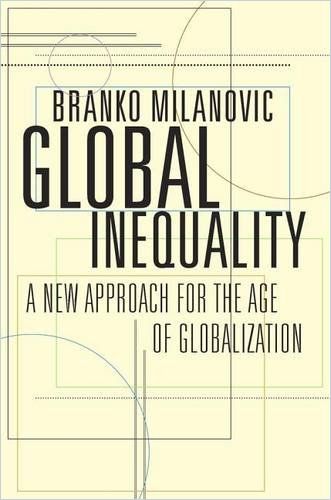
Regarding Piketty’s call for a “new ideology:” Didn’t we just “get rid” of that kind of ideology, maybe even the one of the American Dream, for the better – or at least hoped so? What is your take on the idea?
I think that the leitmotif of Piketty’s new book is that ideologies that justify and rationalize inequalities are key. In that view of the world, changing the justifying ideology changes economic policy and ultimately changes income distribution. My view is more “materialistic.” I think that what Marx called “the objective economic conditions” largely determine ideology. Obviously, it is silly and dogmatic – as Gramsci showed – to believe that the determination is one-to-one, but I think the way in which the economy operates and helps the interests of different classes is crucial.
Will new technology tackle flaws in the distribution of wealth that primarily liberal capitalism relies on? Or will it make them even worse?
Yes. It is technological changes that I think will have the most significant effect on our ideology and on the way we justify inequalities. If, for example, capital becomes more abundant and labor scarce, we shall have a change in income distribution because the factor prices will change. But this might also produce a systemic change where labor, as in start-up companies now, hires capital and not vice versa. That would no longer be the capitalism that we currently identify as capitalism – despite private ownership of the means of production. Hired labor would be gone.
Closing question: If an economic system like capitalism that is internally geared towards competition and that functions at all mainly due to competition now has no more competition, or only “gradual” competition, is it even viable? Are we not dealing here with an enormous cluster risk?
When capitalism is the only “game in town” as is the case since 1989, the danger is that the system will begin to react like every company or individual when it has no competition: It becomes self-centered, conceited, and lets its bad characteristics come to the fore.
It is not accidental, I think, that higher inequality, less concern with social issues, and a top class that openly flaunts its wealth – to the extent that some like Pierre Rosenvallon have proposed the introduction of new “sumptuary laws'” – have become much more common since the fall of the Berlin Wall and adoption of capitalism by China.
Branko Milanović
Lack of competition generates hubris. But history is not preordained. The countervailing power to capitalism skidding in that direction is social organization, democratic decision-making and limits set upon the political power of the rich. The latter one is what Adam Smith, often seen as one of the apostles of capitalism, feared. Let me finish then with a quote from Adam Smith: “But the mean rapacity, the monopolizing spirit of merchants and manufacturers, who neither are, nor ought to be, the rulers of mankind, though it cannot perhaps be corrected may very easily be prevented from disturbing the tranquility of anybody but themselves.”
About the Author
Branko Milanović is a Serbian-American economist. He is most known for his work on income distribution and inequality such as in his books, Global Inequality and Capitalism, Alone. He is a visiting presidential professor at the Graduate Center of the City University of New York and Centennial Professor at the International Inequalities Institute, LSE.

